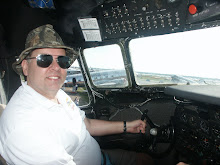 |
| 1971 Logix 0-600 "Electronic" Computer kit |
One of my favorite educational toys was a subscription to "Things of Science." Every month, I'd receive a little envelope or a blue box with science stuff. There would be a small booklet, often with plastic or cardboard parts in the box. The people who came up with this were geniuses, as they managed to package a lot of science into a tiny, inexpensive kit every month.
It was hit or miss each month. Sometimes, the article wouldn't interest me, or I'd just not be patient enough to do the experiments. Sometimes, it would be really cool -- like they'd send enough chemicals to grow a small plant hydroponically. Or send some plastic lenses in cardboard holders to do optics experiments. I played with those lenses for months and months.
And while not every kit was a hit, it at least got me to study some element of science for a few hours each month.
 |
| The actual "computer", sans wiring. |
The first part of the manual contains assembly instructions. These are easy, provided you can turn a screwdriver and strip a wire. I must have been 11 or 12 when I received this kit, and I did the assembly entirely myself up in my room.
 |
| The manual is the brilliant part of the whole kit. |
All you had to do is read the program description, and follow the diagram. So long as you wired it up correctly, the program would work as advertised. The ganged switches were sometimes a little flaky, but not enough to detract from the experiment.
Through the series of programs, the kit teaches some of the basic logic and computer principles -- AND gates, OR gates, NOT gates, Addition, Counting, binary numbers, Venn diagrams and more.
I do remember working through all the programs, and even trying to develop a few myself. At one point, I figured out how to wire up a program, but realized it required a 12-way ganged switch, instead of 10-way. It was beyond the capabilities of the 0-600.
After I ran through the programs in this kit, I don't remember using this machine much more. But it was a real learning experience. The experiments taught me a number of important logic and computer concepts that I later used in my education and in my career. Having it now brings back fond memories.
